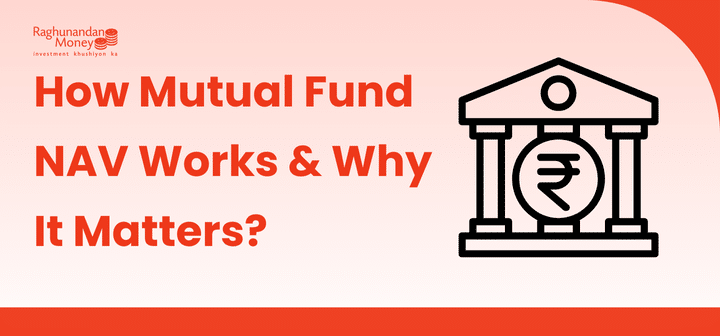Types of Share Capital: A Guide for Investors
Share capital represents the total amount raised by a company through the issuance of shares to investors. It serves as the backbone of a company’s financial structure, enabling it to fund operations, expand business activities, and fulfill long-term objectives. Share capital is divided into various types based on its issuance, subscription, and utilization, each playing a unique role in the company’s financial standing. Understanding these types provides deeper insights into a company’s capital structure and its approach to fundraising.
Types of Share Capital
1. Authorised, Nominal, or Registered Capital
This is the maximum amount of capital a company can raise through public subscription, as specified in its Memorandum of Association. Companies can increase or decrease this capital based on regulatory procedures.
2. Issued Capital
Issued capital is a part of authorised capital offered to the public for subscription in the form of shares. Companies may choose not to issue the entire authorised capital at once. Importantly, issued capital cannot exceed authorised capital.
3. Unissued Capital
This refers to the portion of authorised capital that has not yet been issued. It is essentially the difference between authorised and issued capital.
4. Subscribed Capital
Subscribed capital is the part of issued capital that the public has accepted and subscribed to. If all shares offered are subscribed, issued capital and subscribed capital become equal.
5. Called-up Capital
This is the portion of subscribed capital that a company has called upon shareholders to pay. Companies often collect this in installments rather than all at once.
Example:
If a company issues 20,000 shares at ₹100 each and calls ₹60 per share, the called-up capital will be ₹12,00,000 (20,000 × ₹60). The remaining ₹8, 00,000 (20,000 × ₹40) will be uncalled capital.
6. Uncalled-up Capital
This represents the portion of subscribed capital that has not been called for payment yet. It serves as a contingent liability for shareholders.
7. Paid-up Capital
Paid-up capital is the portion of called-up capital that shareholders have paid. It represents the actual funds received by the company from its shareholders.
8. Fixed Capital
Fixed capital consists of long-term assets like land, buildings, and equipment, which are essential for the company’s operations.
9. Reserve Capital
This is a portion of the uncalled capital that cannot be demanded unless the company is being wound up. It is created by passing a special resolution and cannot be pledged as security or converted into ordinary capital without court approval.
10. Circulating Capital
This is part of the subscribed capital used in operations. It includes assets like bills receivable, book debts, and bank balances.
Representation of Share Capital in the Balance Sheet
Share capital is typically listed under the “Shareholder’s Fund” section on a company’s balance sheet. Paid-up capital is considered real capital, representing the actual funds received from shareholders.
Balance Sheet Representation (Example)
| Liabilities |
Current Year (₹) |
Previous Year (₹) |
| Shareholder’s Fund: |
|
|
| 1. Share Capital |
Xxxxxxx |
Xxxxxxx |
| 2. Reserves & Surplus |
Xxxxxxx |
Xxxxxxx |
| 3. Money Received Against Shares |
Xxxxxxx |
Xxxxxxx |
|
Disclosure Notes for Share Capital:
1.Authorised Capital:
-
- Xy Equity Shares of ₹(x) each.
- Xy Preference Shares of ₹(x) each.
2. Issued Capital:
-
- Xy Equity Shares of ₹(x) each.
- Xy Preference Shares of ₹(x) each.
3. Subscribed Capital:
-
- Xy Equity Shares of ₹(x) each.
- Xy Preference Shares of ₹(x) each.
Conclusion
Share capital is a key element in assessing a company’s financial framework. It includes various types, such as preferred and common shares, and classifications like authorised, issued, and paid-up capital. Understanding these types can help investors evaluate a company’s financial standing and investment potential.
Kickstart Your Investment Journey with RMoney!
Open your Demat Account today and take the first step towards smarter investing and trading!
Need Help? Contact RMoney:

Stock Trading Now trade in ₹9 Per Order or ₹ 999 Per Month Plans.
Future & Options Access F&O contracts with advanced tools for hedging and speculation.
Currency Trading Trade in major currency pairs and manage forex exposure efficiently.
Commodity Trading Diversify Trading with MCX & NCDEX by Trading in Gold, Silver, Base Metals, Energy, and Agri Products.
Margin Trading Funding Boost your buying power with upto 5X, Buy now Pay Later
Algo Trading Back test, Paper Trade your logic & Automate your strategies with low-latency APIs.
Trading View Leverage Trading View charts and indicators integrated into your trading platform.
Advanced Options Trading Execute multi-leg option strategies with precision and insights.
Stock Lending & Borrowing Earn passive income by lending stocks securely through SLB.
Foreign Portfolio Investment Enable NRIs and FPIs to invest in Indian markets with ease and compliance.
IPO Invest in upcoming IPOs online with real-time tracking and instant allotment updates.
Direct Mutual Funds 0% Commissions by investing in more than +3500 Direct Mutual Fund Scheme.
Corporate FDRs Earn fixed returns with low-risk investments in high-rated corporate fixed deposits.
Stocks SIPs Build long-term wealth with systematic investment plans in top-performing stocks.
Bonds & NCDs Access secure, fixed-income investments through government and corporate bond offerings.
Depository Services Safely hold and manage your securities with seamless Demat and DP services with CDSL.
Journey Tracing our growth and milestones over time.
Mission & Vision Guided by purpose, driven by long-term vision.
Why RMoney Platform Smart, reliable platform for all investors' needs.
Management Experienced leadership driving strategic financial excellence.
Credentials Certified expertise with trusted industry recognition.
Press Release Latest company news, updates, and announcements.
Testimonials Real client stories sharing their success journeys.
7 Reasons to Invest Top benefits that make investing with us smart.
SEBI Registered Research Trusted insights backed by SEBI-compliant research.
Our Technology Advanced tools enabling efficient online trading.
Calculators Access a suite of smart tools to plan trades, margins, and returns effectively.
Margin Calculator Instantly check margin requirements for intraday and delivery trades.
MTF Calculator Calculate MTF funding cost upfront to ensure full transparency before placing a trade.
Brokerage Calculator Know your exact brokerage charges before placing any trade.
Market Place Explore curated investment products and trading tools in one convenient hub.
RMoney Gyan Enhance your market knowledge with expert blogs, videos, and tutorials.
Performance Tracker Track our research performance with full transparency using our performance tracker.
Feedback Share your suggestions or concerns to help us improve your experience.
Downloads Access important forms, software, and documents in one place.
Locate Us Find the nearest RMoney branch or service center quickly.
Escalation Matrix Resolve issues faster with our structured support escalation process.
Back Office Log in to view trade reports, ledger, and portfolio statements anytime.
Account Modification Update personal or bank details linked to your trading account.
Fund Transfer Transfer funds instantly online with quick limit updation to your trading account.
Bank Details View our registered bank account details for seamless transactions by NEFT, RTGS or IMPS.
How to Apply IPO Step-by-step guide to apply for IPOs using your trading account.
RMoney Quick Mobile App Trade on-the-go with our all-in-one mobile trading app.
RMoney Quick login Quickly access your trading account through the RMoney Quick web-based trading.
RMoney Rocket Web Version Experience powerful web-based trading with advanced tools for algo traders.
RMoney Rocket Mobile Version Trade anytime, anywhere with our feature-rich mobile trading platform.




















